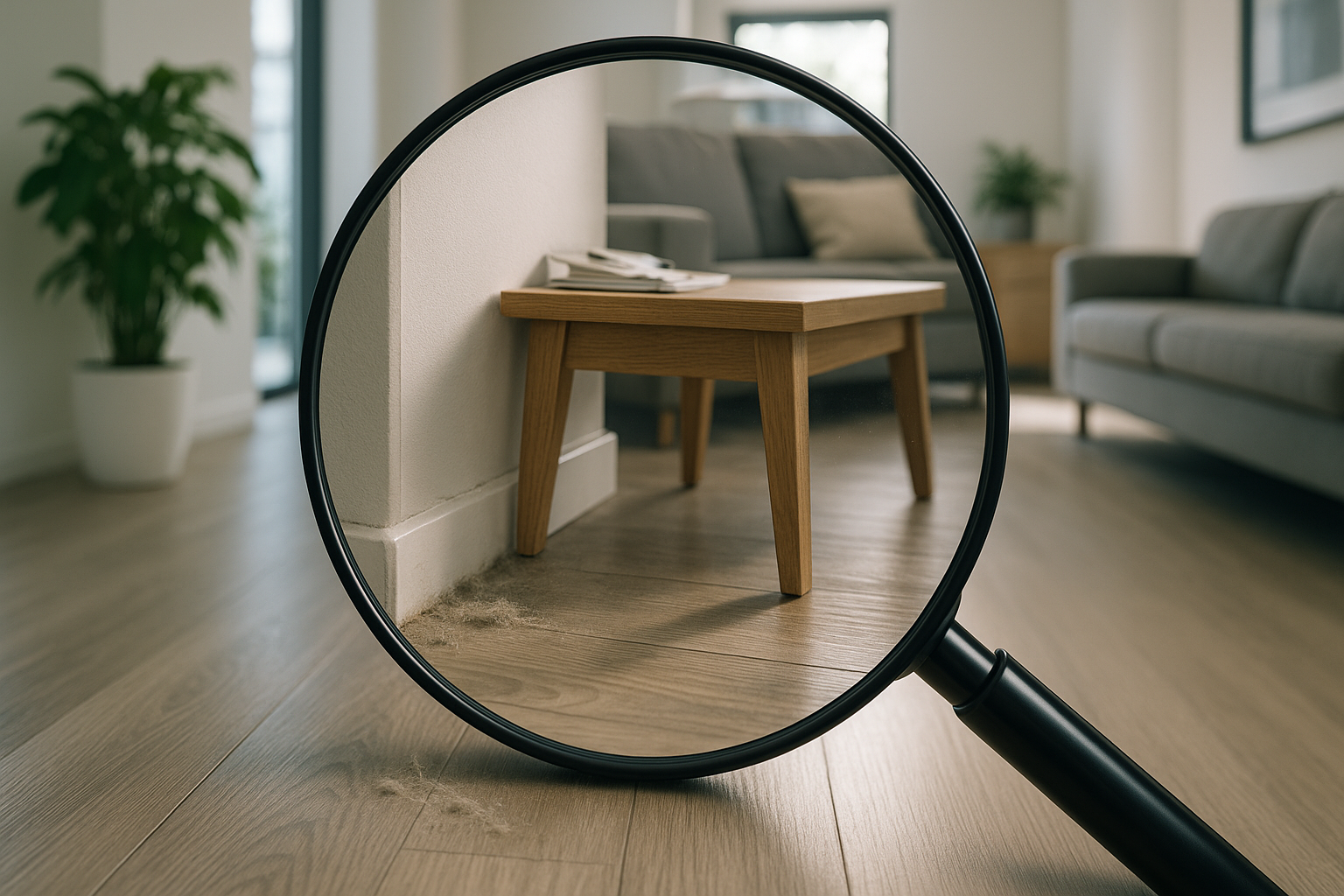At first glance, all cleaning companies seem the same.
They promise spotless spaces, reliable service, and competitive pricing. Many even offer identical checklists — vacuuming floors, wiping down surfaces, sanitizing restrooms. But beneath the surface lies a crucial difference that most clients never think to ask about: how those companies staff their teams.
Some cleaning providers hire and train their own in-house employees. Others rely on subcontractors — temporary workers or third-party vendors — to complete the jobs they’ve been hired for. Both approaches might deliver a clean space today, but they’re not equal in terms of quality, safety, consistency, or accountability. And that hidden difference could be costing you more than you realize.
Here’s why it matters — and how understanding this one behind-the-scenes detail can help you choose a cleaning service that truly protects your investment.
1. Quality and Consistency: Why Teams Matter More Than Tools
A well-trained, consistent team is the foundation of reliable service. When a company employs its own staff, those individuals are not only trained to follow company standards — they’re also personally invested in the company’s reputation. That translates into more consistent cleaning results, attention to detail, and a stronger sense of accountability.
Industry data backs this up. Research compiled by the Society for Human Resource Management (SHRM) shows that companies with strong employee retention rates deliver up to 30% higher customer satisfaction scores than those with frequent turnover (SHRM). High turnover — which is more common in subcontracted or gig-based cleaning models — leads to frequent retraining, inconsistent standards, and workers who may not know your space well.
Subcontractor Reality:
Subcontracted cleaners are often hired job-by-job or day-by-day. They might never clean the same location twice. Even if they’re skilled, they’re usually not trained in that company’s specific quality protocols — and because they don’t represent the company directly, they often lack the incentive to go above and beyond. The result? Cleaning quality that fluctuates depending on who shows up that day.
2. Training and Safety: Who’s Actually in Your Building?
When you hire a cleaning service, you’re not just inviting someone to dust shelves — you’re giving them access to your home, office, or facility. That means training, vetting, and supervision are non-negotiable.
Here’s where the difference becomes clearer. According to the U.S. Bureau of Labor Statistics, companies that directly employ their staff conduct background checks on more than 85% of new hires, compared to just 35% among subcontracted workers in service industries (BLS). That means you’re statistically more likely to know who is in your space — and whether they’re trustworthy — when you hire a company that uses internal teams.
The disparity extends to safety as well. A report from the Occupational Safety and Health Administration (OSHA) found that thorough onboarding and training programs can reduce workplace incidents by 40–60% (OSHA). In-house employees are far more likely to receive this level of training. Subcontractors, by contrast, may only get a brief orientation — or none at all.
Why It Matters:
Poorly trained cleaners don’t just risk missing spots — they can mishandle chemicals, damage surfaces, or even create safety hazards. In commercial settings, this can lead to expensive accidents, compliance issues, or legal liabilities.
3. Accountability and Liability: Who’s Responsible When Things Go Wrong?
Imagine this scenario: A subcontracted cleaner accidentally breaks a piece of expensive equipment or causes a chemical spill. Who’s responsible? In many cases, it’s not the cleaning company you hired.
This is one of the biggest hidden risks of subcontracted cleaning. Because those workers are technically independent contractors, they often operate under their own insurance — or worse, under no insurance at all. That can make it harder to file claims, pursue compensation, or hold anyone accountable if something goes wrong.
The U.S. Department of Labor estimates that misclassified subcontractors cost American businesses over $8 billion per year in fines, penalties, and back payments (U.S. DOL). That’s because the legal line between “independent contractor” and “employee” is complex — and clients often find themselves caught in the middle.
With in-house teams:
• The company carries workers’ compensation and liability insurance.
• Employees are covered for accidents, damages, or injuries.
• There’s a clear chain of accountability — and a clear path to resolution.
With subcontractors:
• Accountability can be murky.
• Liability may shift to the subcontractor (who might not be insured).
• You could end up dealing with legal headaches instead of focusing on your business.
4. Security and Trust: More Than Just Clean Surfaces
Security is one of the most overlooked aspects of choosing a cleaning provider — and one of the most important.
Think about what cleaning crews have access to: offices, storage rooms, sensitive documents, personal belongings, and high-value equipment. Trusting just anyone with that level of access is risky. Unfortunately, subcontracted workers often rotate between sites, meaning new people could be entering your space regularly — people you’ve never met and the company barely knows.
According to a 2023 IFMA (International Facility Management Association) survey, 78% of facilities managers ranked “trust and consistency of cleaning personnel” as a top-three prioritywhen selecting a vendor (IFMA). In-house teams make that possible. Because they’re permanent employees, they undergo background checks, receive ongoing supervision, and develop relationships with clients over time.
That familiarity builds trust — and trust builds long-term partnerships.
5. Cost vs. Value: Why Cheaper Isn’t Always Better
Subcontracted cleaning companies often win contracts on price. Their labor costs are lower, they don’t pay benefits, and they can scale up or down quickly. But those savings can come at a cost.
A study by ISSA (International Sanitary Supply Association) found that companies prioritizing quality and consistency over lowest price saw 25% higher client retention and 20% more recurring contracts year over year (ISSA). That’s because clients realized that cutting corners on staffing led to recurring issues — and those issues cost more to fix in the long run.
Hidden costs of subcontracting can include:
• Rework due to poor quality.
• Increased liability exposure.
• Higher security and risk management costs.
• Productivity losses due to inconsistent cleaning.
The takeaway: A slightly higher upfront investment in a company with trained, dedicated staff can save you significantly more over time — both financially and operationally.
6. How to Spot the Difference Before You Hire
Most cleaning companies won’t volunteer whether they use in-house employees or subcontractors — so you have to know what questions to ask. Here are five that reveal the truth quickly:
• “Are your cleaners direct employees or subcontractors?”
• “Do you run background checks on all staff who enter client spaces?”
• “Who carries liability insurance — your company or the subcontractor?”
• “Will we have a consistent cleaning team, or does it change?”
• “What training do your cleaners receive before being assigned to a job?”
If a company hesitates to answer or is vague about staffing, that’s a red flag. The best providers are transparent about how they hire, train, and support their teams — because they know it’s one of their biggest selling points.
The Bottom Line: Staffing Isn’t Just an Operational Detail — It’s a Quality Guarantee
When it comes to cleaning, most people focus on what’s visible: the vacuumed carpets, the sanitized restrooms, the polished floors. But the real difference between an average cleaning service and an exceptional one often lies in what you don’t see — how they build, train, and manage their workforce.
• In-house employees mean higher quality, better consistency, and more accountability.
• They’re more likely to be trained, insured, background-checked, and invested in the outcome.
• And they give you peace of mind that the people in your space are professionals — not just temporary hires.
It’s a detail many clients overlook. But once you understand it, you’ll never choose a cleaning service the same way again.
Choose a Partner That Values Quality at Every Level
At Apex Bay, we believe that great cleaning starts with great people. That’s why we don’t subcontract our work — we hire, train, and support a dedicated team of professionals who share our commitment to excellence. It’s how we ensure every project is completed with the same level of care, consistency, and integrity our clients expect.
Ready to experience the difference a dedicated team can make? Contact Apex Bay today to schedule a consultation and see how our approach elevates every clean.
Written by the Apex Bay Cleaning Team — a trusted leader in residential and commercial cleaning solutions. We’re passionate about creating healthier, more sustainable spaces through expert techniques, eco-friendly practices, and industry experience. Alongside cleaning expertise, we share practical business advice to help you operate smarter and more efficiently. Our mission is simple: to make your home or business cleaner, safer, and easier to manage — one detail at a time.



